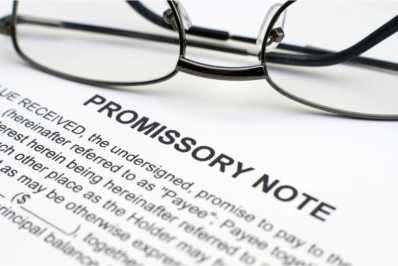In this week’s blog we’ll be looking at Property Settlement Note’s and their impact in a divorce. So, what exactly is a Property Settlement Note? It is a deferred payment in property settlement used to equalize property.
It is important to realize that a Property Settlement Note:
- Used to equalize property
- Not taxable to recipient
- Does not survive bankruptcy
Very often when divorcing couples negotiate the terms and conditions of a property settlement, they agree to a structured settlement, which is a series of smaller payments paid over time, as opposed to a lump-sum payment. In this instance, a series of payments over a period of time comes to more than the agreed upon settlement sum because the recipient normally receives interest to compensate for the delayed payment.
A property settlement note is not taxable to the recipient because the IRS says that the transfer of property in a marriage is not taxable and in this scenario, the property settlement note is still a division of property. However, any interest earned and paid as a term of the property settlement note is taxable income.
A property settlement note does not survive bankruptcy. Therefore, if the husband owns his own business worth $2M and the wife is receiving a property settlement note of $1M for the value and the husband drives the business into the ground and files bankruptcy, the wife may lose her income from the property settlement note.
IMPORTANT Note regarding income
FROM PROPERTY SETTLEMENT NOTE
Income from a property settlement note is not always considered ‘qualifying
income’ for mortgage qualifying purposes and if the income from the property
settlement note is needed for qualification then it is important for you to
consult with a mortgage professional who understands divorce guidelines
because you want to make sure that future financing plans are achievable.
Working with a Property Settlement Note & Mortgage Financing
Misunderstood mortgage guidelines are often the reason for mortgage applications being denied and creating the misconception that mortgage financing is extremely difficult to obtain. Working with a knowledgeable mortgage professional who understands how divorce situations transfer over into mortgage guidelines is key for setting divorcing couples up for success post-divorce. Understanding that various sources of income have varying requirements to be considered as ‘qualified income’ is another key component. Let’s take income from a property settlement note as an example.
There are two standard requirements that need to be met for income from a Property Settlement Note to be used for mortgage qualifying purposes:
- A copy of the note showing payment terms and proof of continuance for 36 months from the date of loan close.
- Proof of receipt of payment for the most recent one year (12 months).
A solution in a situation where income is generated from both support and a property settlement note might be to suggest that all income be classified as support for the time needed to establish minimum receipt and continuance requirements with the divorce settlement agreement containing a modification of support after the required time frames are met.
Why you Need a Certified Divorce Lending Professional (CDLP)
A professional divorce team has a range of team players including the attorney, financial planner, accountant, appraiser, mediator and yes, a divorce lending professional. Every team member has a significant role ensuring the divorcing client is set to succeed post decree.
A Certified Divorce Lending Professional brings the financial knowledge and expertise of a solid understanding of the connection between Divorce and Family Law, IRS Tax Rules and mortgage financing strategies as they all relate to real estate and divorce. Having a CDLP® on your professional divorce team can provide you the benefit of:
- A CDLP is trained to recognize potential legal and tax implications with regards to mortgage financing in divorce situations.
- A CDLP is skilled in specific mortgage guidelines as they pertain to divorcing clients.
- A CDLP can identify potential concerns with support/maintenance structures that may conflict with mortgage financing opportunities.
- A CDLP can recommend financing strategies helping divorcing clients identify mortgage financing opportunities for retaining the marital home while helping to ensure the ability to achieve future financing for the departing spouse.
- A CDLP is qualified to work with divorce professionals in a collaborative setting.
- A CDLP can provide opportunities in restructuring a real estate portfolio to increase available cash flow when needed.
- A CDLP maintains a commitment to remaining educated and up to date in the ever-changing industry guidelines and tax rules as they pertain to divorce situations.
- A CDLP is committed to providing a higher level of service to you and your divorcing clients.
The role of the CDLP is to help not only the divorcing client but the attorney and financial planner understand the opportunities available as well as the challenges divorce can bring to mortgage financing during and after the divorce. When the CDLP is involved during the divorce process and not after the fact, many potential financing struggles can be avoided with valuable and educated input from the Certified Divorce Lending Professional.
“Nothing matters more in winning than getting the right people on the field. All the clever strategies and advanced technologies in the world are nowhere near as effective without great people to put them to
work.” – Jack Welch, Winning




